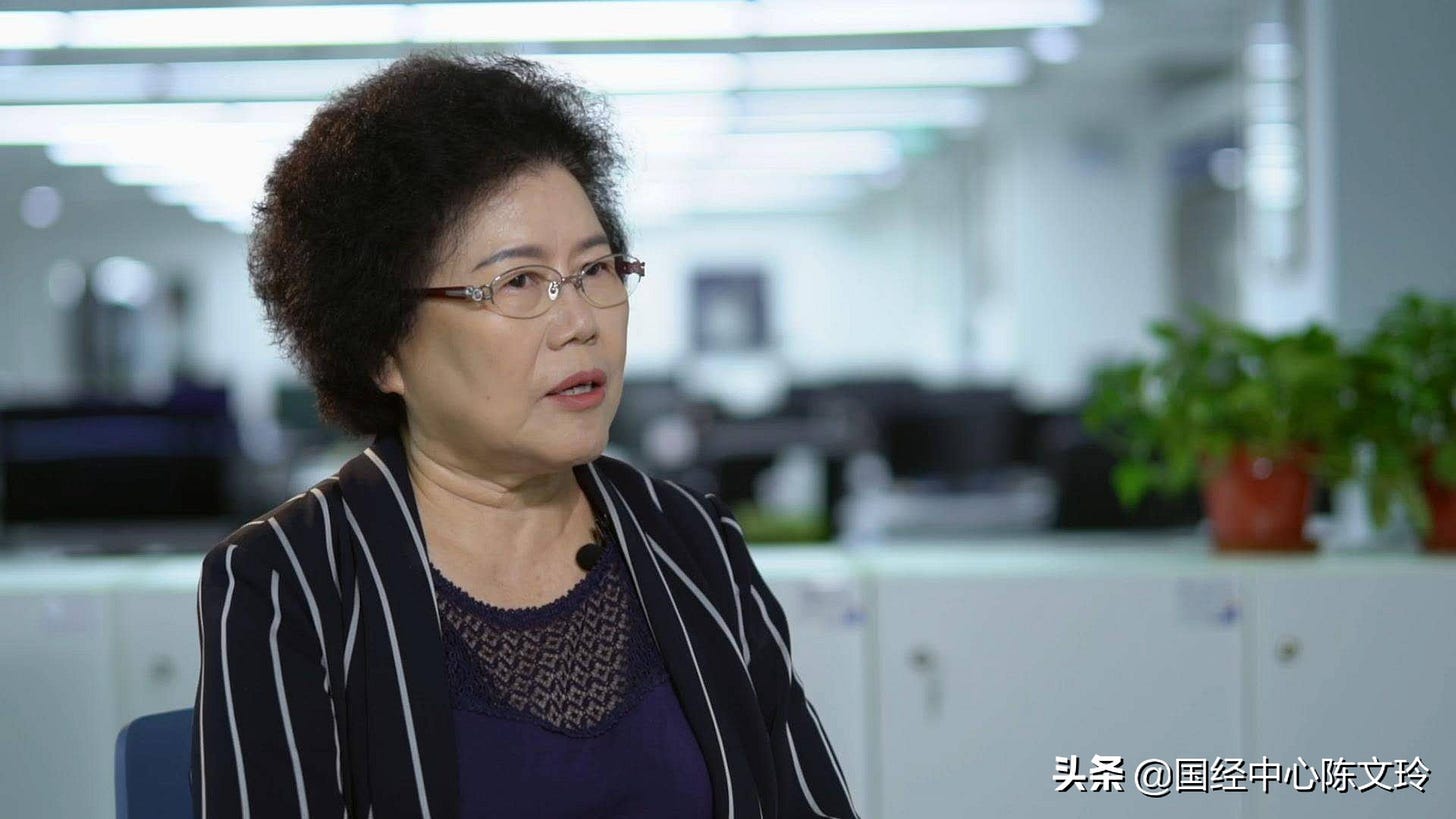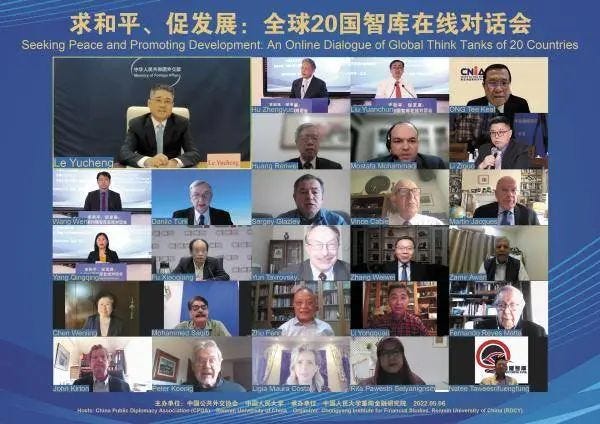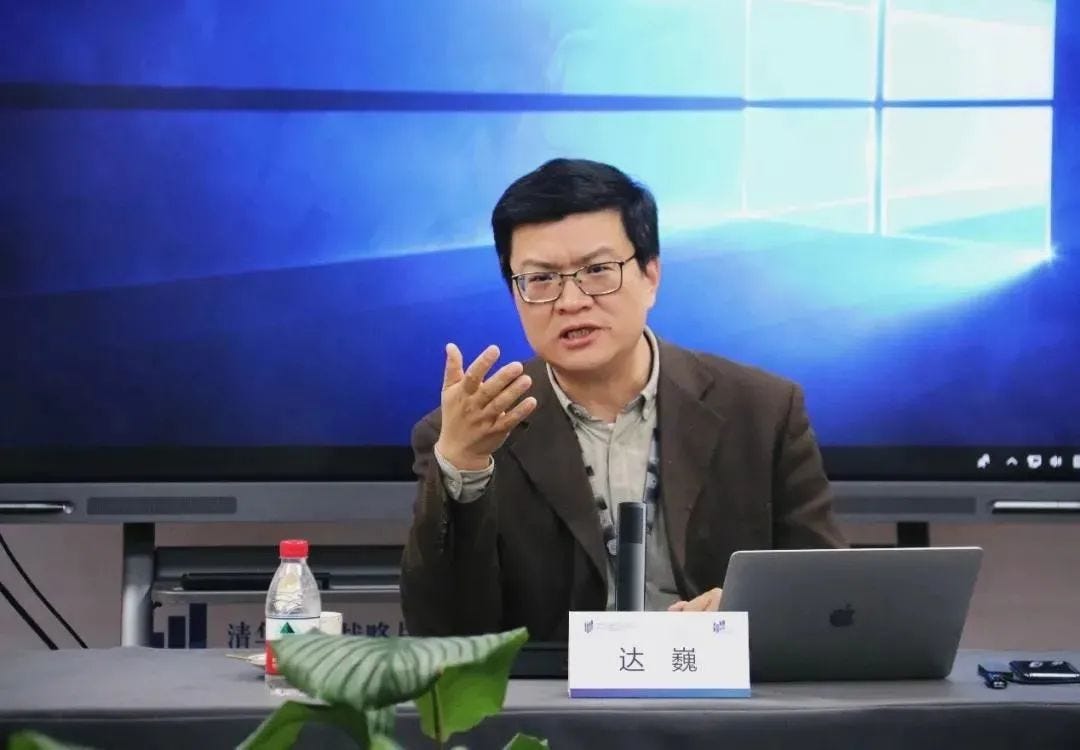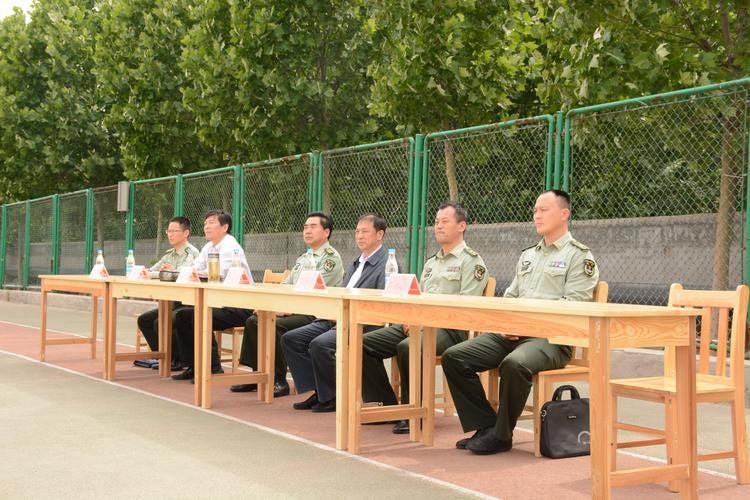Discourse Power | May 12, 2022
Rejecting Stone Age mentality, weaponizing globalization, and some blockchain for your soul
[There were issues sending the email yesterday, so I am sending it again today.]
Good evening from Jerusalem,
Today's underlying theme is US President Joe Biden's meeting with Southeast Asian leaders at the US-ASEAN Special Summit. China is paying close attention to today's and tomorrow's White House meetings, which are taking place against the backdrop of the Ukraine war, America's revamped Indo-Pacific Strategy (released in February), and its stronger network of alliances through NATO, QUAD, and AUKUS.
***
The newsletter is still a work in progress. If you have any suggestions, comments, article recommendations, or other feedback, feel free to drop me a message.
Editors and scholars, if you find Discourse Power useful to your own work, kindly include a reference and a hyperlink.
Thank you for reading,
Tuvia
Top Picks
“Although the right to speak is not yet in the hands of the majority of the people of the world - indeed, discourse power remains in the hands of some hegemonic countries - these hegemonic powers are destined to lose their power over discourse because when you lose the hearts and minds of the people, your right to speak ceases to exist”
Dr. Chen Wenling, a distinguished economist, spoke on the war in Ukraine and the future of globalization, urging think tanks, researchers, and the general public to safeguard peace and promote development by rejecting NATO and US-led Western repression.
Chen is a chief economist under the China Center for International Economic Exchanges (CCIEE), a government-funded think-tank based in Beijing. She delivered a keynote address at a virtual conference of major international think tanks last Friday, hosted by the China Public Diplomacy Association (CPDA) and Renmin University of China, following an address by Vice Foreign Minister Le Yucheng (for a summary of Le’s speech see DP | May 8).
Her first point is that the war must not escalate in order to prevent a third world war from erupting. The source of war is “man's ideological deviation, which has produced all kinds of evil. Before the eruption of the Russia-Ukraine conflict and up to now, some countries and organizations were fanning the flames, adding fuel to the fire, trying to agitate things and prolong the war,” she says, using common euphemisms for the “US-led West” and NATO. In contrast, “China and the majority of the world wanted a cease-fire, urged peace, and encouraged negotiations.”
Chen says that for a global anti-war movement to be formed, "all scholars and people around the world should call for peace and clearly oppose wars and their escalation, as well as hegemonic countries and military organizations that have caused and continue to promote wars. The Global Security Initiative proposed by President Xi Jinping at the Boao Forum for Asia (in April) is an extension and continuation of the United Nations Charter's spirit, as well as a contribution of Chinese solutions to the maintenance of world peace.”
Her second point calls for a moment of reflection “on the origins of the wars and evils that impede the world's peaceful development.” In her view, "the most fundamental reason for global unrest, upheavals, wars, and division, is a persistent hegemonic mentality, Cold War mentality, zero-sum mentality, as well as Stone Age mentality of some countries."
Chen promptly defines what she means by that: "Some people are stuck in the Paleolithic era [roughly 2.5 million years ago to 10,000 B.C.]," in the sense that they go against the hard-won benefits of globalization and economic integration by forming their own ideological cliques and exclusive clubs. "They claim to want to reconstruct industrial and supply chains on democratic values and impose technological decoupling - doesn't this take humanity back to the Stone Age?"
As a result, Chen believes that the current conflict is actually two separate wars: a visible war on the battlefield between Russia and Ukraine, and an invisible war that has infiltrated all aspects of the global economy, such as through economic sanctions against Russia. She goes on to say that if secondary sanctions are imposed on China, the end result will undoubtedly be a lose-lose situation, with the United States suffering the most.
In her third point, she lists 10 types of crises that the global community is facing: 1. War crisis; 2. Every-day life crisis and a humanitarian crisis; 3. Inflation crisis; 4. Energy crisis; 5. Food crisis; 6. Refugee crisis; 7. Financial crisis; 8. Debt crisis; 9. Ecological crisis; 10. Global governance crisis.
To address these crises, Chen believes that humanity must "overcome all differences and disputes and jointly maintain the general trend of world peace and development," because otherwise, "the world's peoples will suffer."
She ends by urging think tanks and academics all over the world to speak out against the following five issues:
“We must firmly oppose war and the escalation of the war.”
“Individual countries using their own "family rules" 家法 and "gangster's code" 帮规 to impose sanctions on other countries is something we must strongly oppose. The current sanctions against Russia have no upper limit, no bottom line, and they are disastrous, causing collateral damage to other countries. We must vehemently oppose this illegal, irrational, and inhumane approach, which seeks to tear the world apart, bringing it to ruin.”
“We must vehemently oppose NATO's sixth eastern expansion. NATO is a military organization, and we must not allow it to pose a threat to us or Russia. Why do you believe NATO wants to bring South Korea, Japan, and other countries into the fold?
We must vigorously oppose the United States' plan to establish an Asian "mini-NATO" - what on earth are you trying to accomplish? What good does it do the US when you try everything possible to encircle Russia and China? What's in it for Europe? What's in it for the rest of the world?”
We must adamantly oppose dividing the world into two camps, two systems, and two parallel worlds divvied up along ideological lines and pushing human society into another cold war.
We must stand firm against global economic wars, which include financial wars, information wars, cyber wars, sanctions wars, and other forms of economic warfare, in order to maintain the global trend of peace and development. (CCIEE)
“The non-Western world is the biggest driving force for the reform of the international order”
Fudan University Professor Zhang Weiwei, a prominent Party intellectual on everything Discourse Power, believes that Russia's “special military operation," as he calls it, against Ukraine is dividing the world into two blocs: the Western world, which imposed sanctions against Russia, and the non-Western world, which opposes the sanctions.
Zhang also spoke at the international think-tanks conference as a keynote speaker (see previews item).
Excerpts:
“The Russian special military operation, in my opinion, has two sets of goals: the first is a military operation aimed at demilitarizing, de-Nazifying, and neutralizing Ukraine. The other is Russia's desire to change the current unreasonable international order, which is dominated by the United States, by changing it from a unipolar to a multipolar order... While the first set of goals is divisive, the majority of countries and peoples around the world support the second.
“For the entire non-Western world, this is an ideological liberation. The irony is that by weaponizing [the global economy], the US itself has destroyed the entire foundation of the old economic order... If you don't want to be a part of this global order, why should we? In this regard, there is a growing consensus in the non-Western world.” (Guancha)
“The conflict between Russia and Ukraine has accelerated the restructuring of major power relations as they compete to boost their military tech and alliances, propelling the world's multi-polarization trend. This current round of great game and confrontation started in Europe, but it may spread to Africa and the Middle East”
Leading US-hand Dr. Da Wei, director of Tsinghua University's Center for International Security and Strategy (CISS) and professor of International Relations, contends the Biden administration is attempting to use the Russia-Ukraine conflict to advance its global strategy of reshaping globalization in its favor.
Excerpts:
“The US has been ‘weaponizing globalization,’ with Russia serving as a small-scale testing ground. The extent to which globalization will be further eroded and fragmented is largely determined by China's relations with the rest of the world.
“After all, China's economy is ten times larger than Russia's, and it has far more financial and trade ties with countries around the world, including the United States. In terms of the US, China is the biggest impediment to reshaping globalization in America's favor.
“Following the conflict in Ukraine, it will be interesting to see if the US and European sanctions against Russia will spread to China and if the US will impose secondary sanctions.
“More damage to globalization is likely if US and European sanctions against Russia harm economic and trade relations with China. Of course, it is a question for US policymakers to consider whether economic sanctions against Russia, which are still limited in their effectiveness, are 'applicable' to China.
“The question of how long the US and European sanctions against Russia will last, especially in the face of energy shortages and higher inflation, as well as whether Europe will continue to sanction Russia ‘to the bitter end,’ is also worth exploring…
“In a nutshell, the question of major power relations restructuring, the degree of globalization erosion, and the effectiveness of new US foreign strategic tools are all three issues that will be affected by various variables in the future.
“However, the intensification of rivalry among major powers, the acceleration of de-globalization, and the expansion of US strategic options are all trends that are almost certain to continue.
“These developments are inextricably linked to the Biden administration's 'designed' strategic reorientation, with the Russian-Ukrainian conflict facilitating this process. Some of the identified trends point to the end of the post-Cold War international order, and its new contours will largely be determined by the choices and actions of the other major powers.
“Looking ahead, there are opportunities - but also challenges - for China. Given its rapid development in the post-Cold War international order, China’s basic course of action should be to avoid the formation of camps between the major powers, as well as any major setbacks to globalization.” (CISS, h/t Bill Bishop for sharing)
“Blockchain technology has the potential to enhance the quality and efficacy of the military’s fighting spirit”
According to Zhao Chunyu of the Shandong Provincial Military District's Reserve Artillery Division, the People's Liberation Army (PLA) should use blockchain technology to keep track of and control “ideological dynamics” within the military, as well as cultivate its fighting spirit.
Excerpts:
“Incorporating blockchain technology into the military training can help boost the morale/fighting spirit 战斗精神 of the troops, which is an important factor in the genesis of combat power.
“A new model of "blockchain + fighting spirit training" can be explored and applied based on the significant advantages of this new technology, such as its decentralized structure, immutability [i.e., once data is recorded on the blockchain, it cannot be changed or deleted], traceability, collective maintenance, anonymity, and ability to form trust.
“Tracking and controlling ideological dynamics 跟踪掌握思想动态 - ideological and political education is a pivotal component in developing a fighting spirit. The precision and effectiveness of fighting spirit training are contingent on our ability to track and control the ideological fluctuations of the commanders and soldiers.
“With the blockchain, commanders and soldiers may be more willing to ‘air their grievances’ and ‘get off their chests’ all the ideological doubts and misgivings about their day-to-day work that they are hesitant to say, cannot say, or don't dare to say.
“Any raw data, such as a record of commanders and soldiers ‘unwittingly spilling the beans’ 吐真言 or ‘whining and grumbling’ 发牢骚, will be recorded comprehensively and accurately in chronological order thanks to the blockchain's immutability and traceability. The use of big data analysis can then be used to pinpoint any areas of doubt in the ranks and provide specific goals for improving their fighting spirit.
“During a war, the various regional combat units act as nodes on the chain, collecting and reporting combat information such as officers' and soldiers' bravery in killing the enemy, as well as heroic and exemplary actions in battle.
“The information can be uploaded to the unit's database for review by the propaganda apparatus before being disseminated throughout the network. This allows providing real-time updates to the fighting spirit training resources, reinforcing the infectious enthusiasm 感染力 and persuasive impact of their messages.” (CSSN)
“This is how the United States uses culture to infiltrate other countries”
Dr. Li Lingyao, a Chinese-American entrepreneur and professor of economics at Peking University's School of Economics, has firsthand experience with how the United States tries to "brainwash" foreign students with propaganda.
Video translation:
“The United States gained its hegemony by hard power but secures it in part by soft power. In 1959, when Eisenhower was the president, he invited 10,000 young people from the Soviet Union to come to America to study and tour the country. At that time, the Soviet Union was still a planned economy, and while its military was formidable, people's lives were difficult.
“[The US expected that] When the students visit America, they will realize how wealthy it is, how its citizens love to spend more than they consume, and how luxurious and comfortable the American lifestyle is, and so on.
“To put it another way, the US wanted to plant a seed in the hearts of these young people, so that when they returned to the USSR in the future, it would blossom and bear fruit when the time was right.
“By teaching these impressionable young people to worship everything foreign and pander to outside powers, they can gradually change their minds, alter their judgment, weaken their ability to think, and then change their values slowly and subconsciously.
" ‘This is how we tear you apart!’ - These young people would eventually be cut off from their own people's traditional culture. This is how the United States uses culture to infiltrate other countries.
“As you may recall, when there were problems in Moscow at the time, and the government decided to crack down on the insurgents, these young men went to block the tanks and prevent the soldiers from entering the city. The United States has successfully brainwashed them. 'It's better to spend a dollar on propaganda than five dollars on defense,' one American president once said…
“In the past, US military actions in the Asia Pacific region have all ended in failure, which is partly due to China's presence in the region. We can see that China's military and economic strength has ensured Asia's geopolitical security, whether it was during the Korean War or the Vietnam War.
“To be independent and self-sufficient, a country must be able to fend for itself in the face of fire and flames. Western liberal democracy as a whole is a sham. We could not have had the stable life we have today without the Communist Party of China's War of Liberation [the Civil War, 1945-1949], the War to Resist US Aggression and Aid Korea [the Korean War, 1950-1953], and the Reform and Opening and military modernization [since 1978]. Therefore, we must truly thank the Party.” (Douyin)
Playing in the Background
If you've ever wondered what Frank Sinatra would sound like crooning over hard rock, wonder no more - a new Black Midi single, which juggles multiple genres at lightning speed. Buckle-up:
Discourse Power is written by Tuvia Gering, a research fellow at the Jerusalem Institute for Strategy and Security and a Krauthammer Fellow, specializing in Chinese security and foreign policy, and emergency and disaster management. Any views expressed in this newsletter, as well as any errors, are solely those of the author.
Follow Tuvia on Twitter @GeringTuvia







